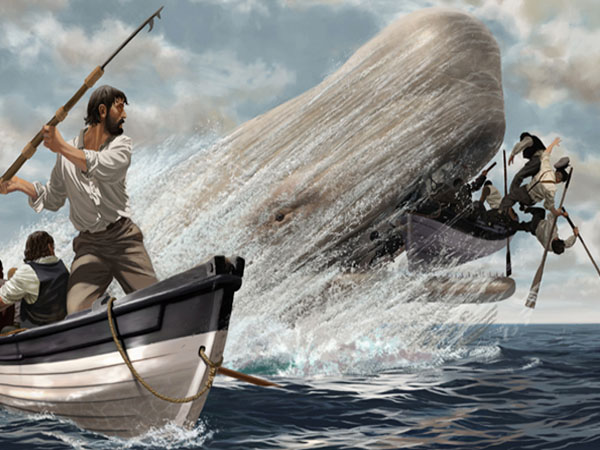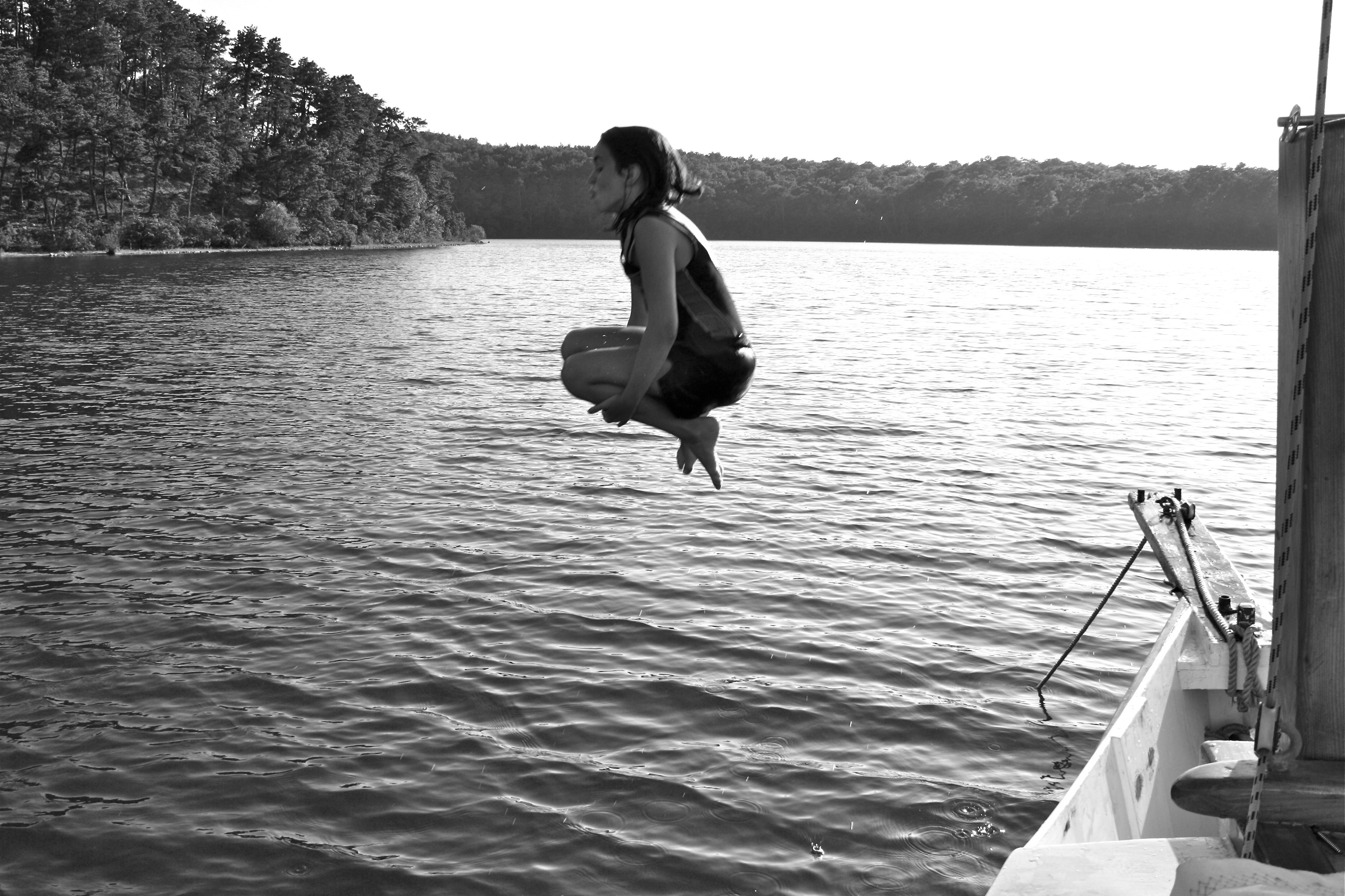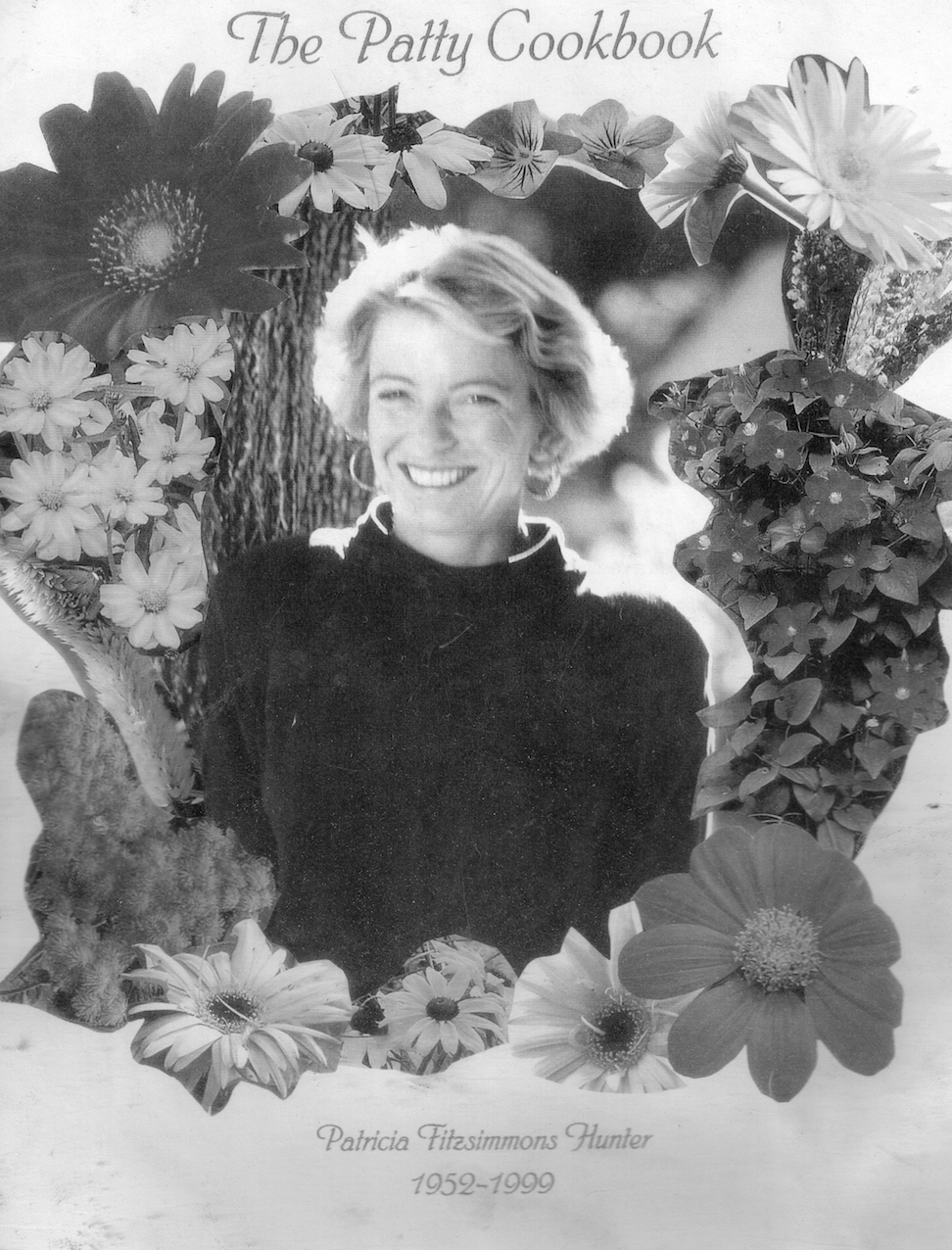
by Fitz | Mar 1, 2015 | Essays, Journal, Teaching
A literary reflection to my students…
The lowering for whales, the appearance of Fedallah’s crew, the vivid descriptions of the first chase in a sudden and unrelenting gale, the fatalistic joy of resigning oneself to fate, the awesome poetic intensity of Melville’s prose—the intermixing of the mundane with the profound and metaphysical, balancing historical accuracies with inner musings on motives and aspirations all make for a compelling read in chapters 42-51.
There is nothing to get but the sublimity of the experience. These are words that must be read–and perhaps reread many times–to appreciate the accumulating power. To become lost by and in the words of Moby Dick is to be lost in the briny mix of our own lives. I read and my mind wanders and seeps into my own life with its mix of romantic dreams lost in the colder harshness of everyday reality.
I have to let myself be pulled and borne by the power of the sea and the maniacal focus on desire, for somewhere in us is the monomania of Ahab equally balanced by the stoic sense of purpose of Starbuck, the self-abnegating and joyful acceptance of fate in Flask and Stubbs, the sheer wonderment and astonishment of Ishmael to simply be there, the visceral and primal wisdom of Queequeg, and the crazy interplay and intermixing of the crew in their universal worldliness and embrace of a common vision—and Moby Dick, the ubiquitous beast, dream, nightmare, and reality that courses through the pulsing aorta of the narrative.
This reading is not and should not be a chore. It is the adventure itself, and a hard and tasking adventure it is that you are tackling day and day out, no less than the crew itself, for the Pequod is, through better and worse, our classroom and our teacher, and we must all stand watch on the mastheads and scan for distant spouts on a vast horizon even, like the mysterious Fedullah, on nights lit only by the sliver of a moon–framed against the vastness of a cold and unforgiving sea and one man’s usurpation of a collective odyssey.
Keep reading.

by Fitz | Nov 24, 2014 | Essays, Journal, Teaching
“Classic’ – a book which people praise and don’t read.”
~Mark Twain
A note to my 8th grade class:
All of you are supposedly reading a classic book, but what Twain says is true: few of us go thirsty to the well and willingly read the greatest works of literature because…well, just because.
The dutiful among you are simply answering the call of an assignment. Some among you are skimming as much as possible to glean just enough to talk or write intelligently about the book, while the laziest among you are putting off reading as long as possible before I ask you to write something meaningful about what you are reading. And then: thank God for Sparks Notes. You might even get away with it.
But only for a while.
Life has a way of catching up with us in some karma-like way. Nobody I know willingly admits that he or she is a shallow shell of a person masquerading as a carrier of knowledge and wisdom. We need to believe that how we live is not only sustainable, but also healthy and vibrant. But how healthy can we be if our thoughts are only as wild and free as turkeys in a pen? How healthy can we be if the food of our mind is a mush of glutinous starch and sugar? Sooner or later the fat settles in, the muscle fades, and a simple walk down the street feels like an epic journey.
My hope is that whatever you are reading is both exhausting and energizing. I hope you sit down to read and forcefully pry the blinders away from your mind and open yourself to the possibility of a true and profound literary experience. I hope that you are sensing the eternal value of a transient experience. I hope that you are giving a damn and trying to figure out how and why the words you are reading are considered to be classic literature.
The book you are reading is considered a classic not because a coterie of fuddy-duddy English teachers have decided something is deemed to be “required” reading. What you are reading is a classic because the words, plot, and value of the book has been proved time and time again in and through the ravages of time and place. Your book is a mountaineer who has scaled some previously unscalable mountain peak.
You, too, are a mountaineer being led by your efforts to a higher peak than perhaps you have climbed before.
Good books do that. Great books do it over and over and over and over.
At this point you may be tempted to rest in a valley and be satisfied with a more narrow view. My youngest son, Tommy, is working on his 6th grade Explorer Project. His subject is George Mallory, the one who when asked why he climbed the highest mountains, simply said, “Because it’s there.” Mallory died on Mount Everest. He and his partner, Sandy Irvine were last seen in 1924 just 800 feet from the summit. Mallory’s body was found some seventy-five years later. No one knows whether they reached the summit or not.
Keep Mallory’s spirit alive. Read your classic. Keep climbing.
Because it’s there.

by Fitz | Oct 17, 2014 | Journal, Teaching
Maybe there is a God. I just came home and sat down in the kitchen to grade some papers and input some grades, but the internet is buggy and slow, and I thought, “maybe this is the message” that I am trading my soul for work. I even remember myself pontificating in class today with some eloquence about the need to find a time, place and approach to writing that is conducive to thoughtfulness and creation.
Plopping myself down in the nearest chair to grade is not a good practice of my preaching.
So I came out here to the back porch. After this afternoon’s heavy rains the sky is now lit up with a distant sun that somehow out of impermeable gray painted a pink monochrome against the trees in my backyard. Emma is filming the scene because it is “so cool.” The warm, muggy air is nothing like a mid-October evening should be, and there is an uneasy and unsettled expectedness in my head.
But I don’t know what I am expecting. Maybe some insights into something? Maybe a poem will crawl out of a burrow and land on this page? Maybe just this—a few words stolen from a busy night small enough to remind me to slow down—and big enough to remind me that I can’t be different from my students, for no writer is beyond practicing the mundane. It is the only way, to paraphrase Thoreau, to stir the torpid snake of our thoughts into a renewed life.
These last few minutes of “free” time need to be spent shaking off the detritus of the day and welcoming the night ahead, which for me means a few hours of singing folk songs in a local pub and the chance to celebrate both humility and grandeur in the same breath, for I am a very small potato in a very large and very good stew—but at least I am in the stew.

by Fitz | Oct 11, 2014 | Essays, Journal, Teaching
It’s not just a couch; it’s a sofa, too
~Fitz
I remember my first year teaching at Fenn—and it was really my first stint as a true worker with responsibilities outside of what I already had in my wheelhouse—and on this day, some twenty something years ago, I could hardly move. Every Columbus Day weekend for as long as I could remember we (gangs of friends and I) would head up to Stinson Lake in New Hampshire where my family had a cottage, and I had my usual agenda of mountain climbing, fishing, or even a last sail on our Sunfish around the amazingly pristine waters on my bucket list for those three days.
But this weekend came to be known as the “weekend of the couch.”
All I seemed to be able to do was sleep. Denise, who was not yet my fiancé, and our pack of friends, seemed to have a ball, but all I could do was wave goodbye or say, “I’ll catch up with you later…” But I never did. I put my head back down and slept, literally, for three days. The mental wear and tear of being a teacher had caught me off guard, for somehow the seemingly mundane lists of things to do never seemed to cease—and I was the shop teacher! I think I would have melted or imploded if I was trying to do what I almost naturally do now. A terse letter then from a parent would have me agonizing over a politely worded response. A student upset with a grade, or a mean friend or teacher, would have me scouring a book of psychology for a solution.
This new job was not as straightforward as singing four hours of songs in a pub, cutting down eight cord of wood, sailing through a storm, setting stones or banging nails in winter cold, finding myself alone and broke in some distant corner of the world—all of which had been a big part of my life until that first fall of teaching—and so I laid myself down to rest as I had never done before, all because being a shop teacher was the toughest job I had ever tried to tackle. That endless stream of enthused boys aged nine to fifteen had done what no other job had ever done: exhausted me simply because they energized some part of me that must have lay dormant for the entirety of my adult life—and at that time I was thirty-five years old for God’s sake!
But now I am fifty-six and have been teaching ever since, more writing and reading than shop—and it is still as hard and exhausting as ever, but in a different way. Even last night—a Friday night—I stayed up until one in the morning reading and commenting on my student’s blog posts and journal entries. I read reams of essays about Walden and Tom Sawyer. I listened to their podcasts and watched their video’s and tried to pen a few words of real praise for every effort they made over the course of the last week, and it reflects a massive amount of effort on their part, but for me, tired as I was, it was not a big effort that drained me; moreover, it was more a celebration of the joy of being a teacher, and I woke up this morning “psyched” to continue what is now a rhythmic cycle more in cadence with the seasons than a Sisyphean effort to push an irregular boulder back up a slaggy, barren mountainside.
It is this way because I work in a place that gives me structure and freedom in equal doses. My bosses never hang behind my shoulder and nitpick my constantly evolving curriculum; my parents don’t scrutinize and dissect my motives, and my co-workers laugh with me, bitch with me, and work just as hard at our collective mission as teachers, as if there is no other way. It is by no means a “dream job,” but my school is a place that allows me to dream as deeply as we hope our students dream. Granted, The Fenn School is a rarified community backed up by an enormous cache of accumulated wealth and uncommon worldly success, but when stripped of these trappings every class is simply a group of kids being asked to do what each of us teachers feel he (it is a boy’s school) need to do, and whatever pressure I feel as a teacher is counterbalanced by an academic freedom that deflates that pressure, and so I wonder if this is an approach that just works for us or if it is a reality that needs to be—or at least could be—emphasized in every school, regardless of wealth, opportunity or standing.
If each classroom becomes a family, then every teacher will respond in ways that transcend the trivial; if every school becomes a community that pulls together through the thick and thin of the vicissitudes of the year and places trust in teachers and students, then maybe (I’d say probably) the first six weeks of school won’t put anyone on the couch.
It’s time now and always to climb that mountain with free and joyous motion.

by Fitz | Oct 3, 2014 | Essays, Journal
Finally, the tall green pines standing sentinel around this cold and black New Hampshire pond are framed in a sky of blue. After a month of steady rains, foggy nights, and misty days, I am reborn into a newly created world—a world that finally answered my prayers: no more trying to find that elusive spot under the camper awning that doesn’t seem to leak; no more running across the wet field dragging Tommy bouncing and laughing like a half-inflated beach toy towards a smokey campfire: and (almost regrettably) no more endless scrabble, card games, monopoly, and shallow books. This fresh blue morning barks out the possibilities of the day: Here is my rope-swing. Here are my trails. There lie my waters….
The window is small and the day is large. I shouldn’t even be here teasing words from an empty page when I should be embracing the possibilities of today. As Thoreau said: My life is the poem I should have writ/ But, I could not both live and utter it. The ignorant and lazy part of us might want to rally around Thoreau’s sentiment and say, “Amen to that,” but we would miss the irony and wistfulness of our collective predicament: like kids balancing on a plank set on a log, we scramble back and forth to find that sweet spot on the plank, that place of perfect balance between the forces of yin and yang—but, if we find that spot, we allow ourselves only a few moments of self-indulgent awe before searching for a more elusive and demanding challenge.
To live fully, we must be bored quickly by the easy and mundane. We have to set a larger plank across a bigger log. There is no legal limit to how many balls a juggler can have in the air. We are only captive to gravity and the sun ticking its way towards the horizon.
I need this blue sky to let me see the horizon and the infinite juxtapositions between the earth and sky. I need to be reminded that my page will always be empty if I don’t embrace the day that comes before it. I need to rush headlong into the blinding light. I need to fall and get up time and time again with a contagious and courageous rhythm, and I need to remember to spend my day and not simply save it, as if I could redeem it tomorrow.
My life and my words are my final redemption, woven and rushed imperfectly into the rags I wear.
~Windsor Mountain, 2011

by Fitz | Sep 23, 2014 | Journal
When Cool Was Really Cool
Life is not counted by the amount of breaths we take,
but of the moments that leave us breathless.
~Unknown
We were coming home from church one morning and Jimmy Glennon pulled up beside us as we approached the Sudbury road lights. He didn’t notice the well-dressed family of eight scrunched into our old Pontiac station wagon as he revved the engine of his yellow and black mustang fastback. I was crammed in the rearward facing back seat doling out peace signs and air horn salutes, but the scene unfolding in front of me was one of the coolest scenes ever: here was the guy Patty had a date with the night before seeming to challenge my father to a drag race, or at the very least humiliate, the infamous and fiery EJ—on a Sunday morning no less. When the light turned green, Jimmy pulled away in a squeal of burning rubber and glorious smoke, fishtailing his car as he laid down a patch—a testament etched like black marker into the road, and which would last several more months of my bragging to my friends that I had the coolest big sister in town, and I would retell that story to every new kid who sat next to me on the bus as we drove by that spot every weekday on the way to the Peabody Middle School.
That moment sealed it for me: I really did have the coolest big sister in town—and now I could prove it in the hardscrabble myth-making of a crowded kid-filled neighborhood. I could now glow in the reflected light of her infinite coolness, and I still live in that light, but it is now deeper, richer, and more penetrating, with a lingering and haunting pain that still leaves me numb and lonely; but, through Patty we can all be cool; we can live with a richer understanding of our dreams, our struggles, and our potential to embrace the scope of the day, and we can simply share the patchwork mosaic that she wove with the divergent strands of our lives.
When I was young, Patty lived in another age. She moved as a phantom through the house because she was like eighteen when I was eleven; she had friends who would hoist me to the top of the basketball hoop bolted above the garage door; she had friends who played guitars in the basement and pierced each other’s ears, and she had friends in prison and friends who died in the Vietnam war, and she had friends that she kept for all of her shortened life—most of whom are here today. My other sisters were never as cool as Patty. Eileen, in her quest for perfection, would charge me a quarter if I didn’t make my bed right; Mary Ellen would lament that I was embarrassing the whole family because of my bad pitching in little league, and Annie, who was almost as young as Patty was old, was too little to be cool and did things like take our meal orders before supper on a stolen Friendlies waitress pad. My little brother Tom never seemed to feel the need to be cool.
So it all fell on me.
I really wanted to be cool. I wanted a different and clear slant on life like Patty, but I certainly did not want to work as hard as her; so, like so many other people, I used her as my mentor—my guide through the vagaries and vicissitudes of life. And she guided me well: she had a way of making your little adventure or undertaking be one of immense importance, but, equally important, she would put her life into your venture by helping to make it become real. She knew that anything worth trying was worth doing, and so any dream could be pounded into reality; any project could be finished, and any problem or struggle had a way through, and her hand was always there to help it happen.
Patty gave me faith in all that is infinite and eternal because that was the nature and source of her energy. Need a book typeset? Just drop it off. Need a sweater? Just drop a hint. How about a party or a place to stay? A weekend at the cape? A babysitter for the weekend? How about a car? Patty would hand down her cars like other people would their sweatshirts. Patty had that rare thing: a wisdom that was not proud of itself and a door that was always open.
The more you knew Patty, the richer you would become. The best part of going to U-Mass was the chance to live near Patty. I mistakenly thought that living near Patty would put us on equal footing. It was there where I lived, not only in the light of her coolness, but in light of her kitchen, where I would show up on a regular basis with a regular stream of spiritually and physically hungry friends, all of whom found that cool as she was, Patty was also warm and magnanimous beyond compare. It was in her kitchen where I first got to hang out with her as a friend, confidant, and cheerleader. My first night at U-Mass, we met for beer down at The Drake, a classic dive of a bar with smoke and pool tables and peanut strewn floors. It seemed strange and normal to be sitting down with her and Donald—her avowed Marxist, long-haired, archaeologist boyfriend who complimented her so perfectly and would soon become her perfect husband and partner and soul-mate until death parted their life together.
It may seem dumb, but it was like a first date for me. But, it was better than Jimmy Glennon burning rubber at the route two lights; it was better than her taking off with Tubby in an old Triumph Spitfire—and Mary and EJ panicked that she was eloping—with a Jewish boy at that. Better than when her and Mary Ellen got caught pinning up their catholic school skirts at the bus-stop; better than when one of her friends escaped from prison; better than hearing that her dorm in Southwest was the target of another drug raid; better than when her and a couple of friends hopped in the back of an old bakery truck and moved to Oregon—and EJ making me promise not to tell her mother that it wasn’t a real bus. It was better because it was finally real and not just my vision of some more exciting reality. We were in a smoky bar and laughing and talking and telling stories, and she was with a guy who made her laugh and made her incredibly happy. I could feel her knitting together the best fibers of our family and creating a tapestry that nothing can undo—a tapestry that has stood the test of time.
Patty showed that small gestures are huge, and that huge actions are always doable. She would call and be as excited about her student Rodney’s wrestling match as she would winning teacher of the year. She would drive five hours to have dinner with my mother, or to bring a swimming list to Alba, or to drop off a present for one of your kids. She showed how simple it is for giving to be a gift for everyone involved.
In the perfect memory of love, Patty will always live on. And we will always be amazed, humbled, and for me, sometimes simply awestruck … and breathless







